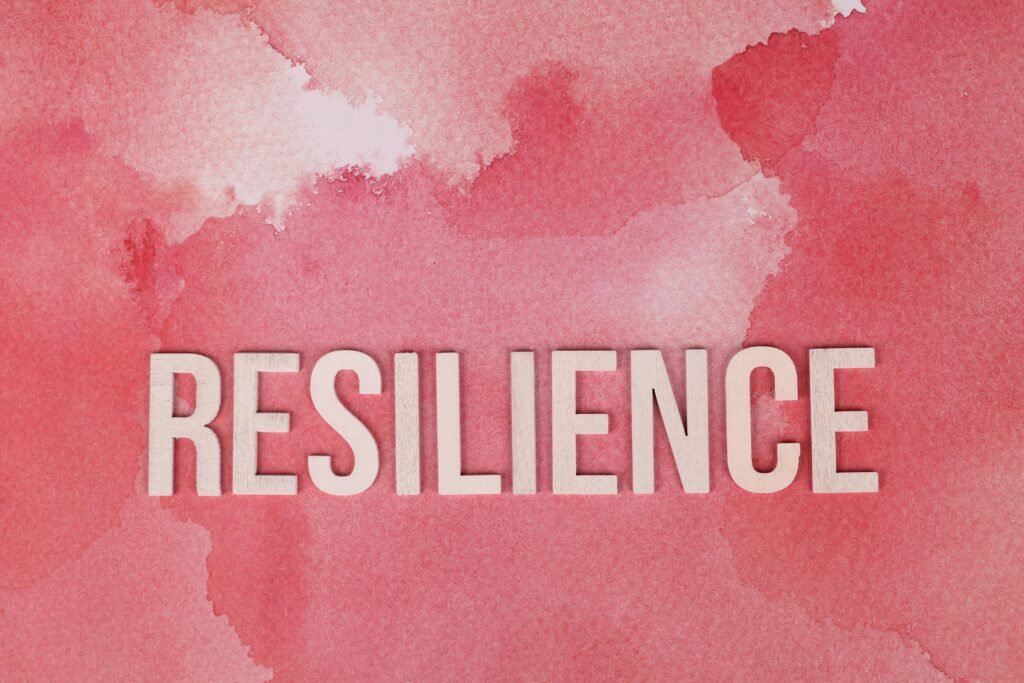
Introduction to Personal Growth
Personal growth is an exciting and life-changing journey that shapes who we are and who we aspire to become.
It’s about pushing our boundaries, facing challenges head-on, and continually evolving to reach our fullest potential.
This journey isn’t just about major life changes; it’s also about the small, everyday decisions that collectively lead to significant growth over time.
Consider the concept of self-improvement.
At its core, personal growth involves a commitment to bettering oneself in various aspects of life—be it emotional, mental, physical, or professional.
Each step taken towards improvement, no matter how small, contributes to your overall development and success.
One of the most empowering aspects of personal growth is that it is deeply personal and unique to each individual.
There’s no one-size-fits-all approach, which means you have the freedom to define your own path.
Whether you’re aiming to enhance your emotional intelligence, advance in your career, or improve your relationships, your growth journey is entirely your own.
Think about the power of setting clear, achievable goals.
This practice is a cornerstone of personal development.
When you set specific goals, you create a roadmap for your journey.
This helps you stay focused, motivated, and aligned with your aspirations.
For instance, if you aim to improve your public speaking skills, setting milestones such as joining a local speaking club or practicing in front of a mirror can make the process more manageable and less daunting.
Support systems play a crucial role in personal growth as well.
Surrounding yourself with positive influences, whether they’re mentors, friends, or family, provides encouragement and accountability.
These relationships can offer valuable insights, constructive feedback, and the motivation needed to persevere, especially during tough times.
Another key component of personal growth is resilience.
Life is full of challenges and setbacks, but it’s your ability to bounce back and learn from these experiences that fuels your growth.
Embracing failure as a learning opportunity rather than a roadblock can transform your mindset and propel you forward.
For example, if you’re working towards a fitness goal and experience a setback, viewing it as a chance to reassess and adjust your strategy can be far more productive than seeing it as a defeat.
Continuous learning is also fundamental to personal growth.
Staying curious and open to new knowledge keeps you adaptable and prepared for the ever-changing world around you.
This can be as formal as enrolling in courses or as informal as reading books and engaging in meaningful conversations.
Every piece of new information you acquire adds depth to your understanding and capabilities.
Ultimately, personal growth is about taking proactive steps to become the best version of yourself.
It’s about setting goals, seeking support, embracing resilience, and fostering a lifelong love of learning.
By doing so, you’ll not only improve your own life but also inspire and uplift those around you.
Overcoming Personal Challenges

Facing and overcoming personal challenges is a key component of self-growth.
Take the story of Jessica, who faced the daunting challenge of losing her job unexpectedly.
Instead of succumbing to despair, she decided to take proactive steps.
Jessica began by setting clear, written goals for her job search, seeking the support of her friends and family to stay motivated.
This approach aligns with the findings from the Gail Matthews study, where participants with written goals and additional support reported higher success rates in various life aspects, including increasing productivity and reducing work anxiety.
Jessica’s perseverance paid off when she secured a new position that not only matched her skills but also offered more career growth opportunities.
This example underscores the power of setting goals and seeking support as a means to overcome life’s challenges and achieve personal growth.
Another inspiring story is that of Michael, who struggled with severe anxiety that impacted his daily life.
Recognizing the need for change, Michael took decisive action by enrolling in therapy and practicing mindfulness techniques.
His journey was tough, filled with moments of doubt, but he persisted.
By working closely with a therapist, setting small achievable milestones, and celebrating each victory, no matter how minor, Michael gradually managed to reduce his anxiety levels.
His story is a testament to the importance of professional guidance and self-discipline in personal growth.
Let’s not forget about Sophia, who faced a significant health crisis.
Diagnosed with a chronic illness, she was initially overwhelmed.
However, Sophia chose to channel her energy into understanding her condition better and adapting her lifestyle accordingly.
She educated herself about the illness, adjusted her diet, and incorporated regular exercise into her routine.
By setting health-related goals and keeping track of her progress, Sophia managed to improve her quality of life substantially.
Her experience highlights the resilience and determination required to overcome health challenges and thrive.
Then there’s David, who was once paralyzed by fear of public speaking.
Acknowledging this fear, David committed to confronting it head-on.
He started by joining a local Toastmasters club, where he could practice in a supportive environment.
With each speech, his confidence grew.
David set incremental goals, such as delivering short presentations at work, and gradually moved on to larger audiences.
His journey demonstrates the power of facing fears directly and the role of community support in overcoming personal challenges.
These stories emphasize that personal growth is a journey of resilience, persistence, and support.
Jessica, Michael, Sophia, and David all faced different challenges, but their commitment to setting clear goals and seeking the necessary support enabled them to navigate their obstacles and achieve self-growth.
Their experiences serve as powerful reminders that with determination and the right support system, overcoming personal challenges is possible.
Career Development Stories

Career advancement is a pivotal part of personal growth, and real-life examples can be incredibly motivating.
Take Samantha, for instance.
She began her journey as an entry-level customer service representative.
With a keen interest in understanding customer behavior, she started taking online courses on customer experience management during her free time.
This continuous learning not only improved her skill set but also caught the attention of her supervisors.
Recognizing her dedication, they promoted her to a customer experience analyst role within a year.
Samantha’s story shows the power of self-initiative and the impact of learning on career progression.
Another inspiring example is Raj, who found himself stuck in a mid-level engineering position for years.
Frustrated but determined, he decided to seek mentorship from a senior engineer who had successfully navigated similar challenges.
This mentor helped Raj identify gaps in his skills and advised him on taking specific courses and certifications.
Over time, Raj applied this newfound knowledge to tackle more complex projects, eventually earning him a promotion to lead engineer.
His experience underscores the value of mentorship and targeted skill development in advancing one’s career.
Consider also the story of Emily, a graphic designer passionate about her craft but unsure how to make a bigger impact.
She started a side project designing logos for small businesses, which allowed her to experiment and refine her style.
Emily then showcased her work on social media, gaining a substantial following and attracting freelance clients.
Her growing portfolio didn’t go unnoticed; soon, she was offered a senior designer position at a renowned agency.
Emily’s journey illustrates the importance of passion projects and the role of self-promotion in achieving career goals.
Then there’s Carlos, who worked in sales but aspired to move into a managerial role.
To make this transition, he began by volunteering for leadership opportunities within his company, such as leading team meetings and organizing training sessions.
Carlos also sought feedback from his peers and supervisors to improve his leadership skills.
His proactive approach paid off when he was eventually promoted to sales manager.
Carlos’s story highlights the significance of taking initiative and the importance of continuous feedback in climbing the career ladder.
These stories reveal that career development often involves a combination of continuous learning, seeking mentorship, taking initiative, and leveraging available resources.
Whether it’s through education, mentorship, or hands-on experience, these examples show that anyone can make significant strides in their professional journey with determination and strategic action.
Finally, we have Lisa, who was a marketing specialist with dreams of becoming a digital marketing expert.
She took advantage of her company’s professional development program to enroll in specialized digital marketing courses.
Lisa also joined relevant professional organizations to network with industry leaders and stay updated on the latest trends.
Her dedication led to a role as a digital marketing manager, where she now leads her team in innovative campaigns.
Lisa’s path demonstrates the value of leveraging company resources and industry connections for career growth.
Emotional and Mental Growth

Emotional intelligence plays a vital role in personal relationships and overall well-being.
For Sarah, working on her emotional growth was regenerative.
She realized that her tendency to react impulsively was affecting her relationships with family and friends.
To address this, Sarah began setting clear goals for emotional development, such as practicing mindfulness and active listening.
Her efforts were in line with the successful strategies observed in the Gail Matthews study, where the most successful participants had written and clear goals, committed to action, had accountability partners, and provided weekly progress reports.
As Sarah cultivated her emotional intelligence, she noticed a significant improvement in her personal relationships, demonstrating how emotional growth can lead to more fulfilling connections and a better understanding of oneself.
Michael also faced challenges that required emotional growth.
Struggling with severe anxiety, he realized that he needed to make changes.
Michael took decisive action by enrolling in therapy and practicing mindfulness techniques.
With each small milestone achieved, his anxiety levels decreased, and he became more adept at managing his emotions.
This journey wasn’t easy, but it highlights the importance of seeking professional help and the impact of setting achievable goals in personal growth.
In another inspiring example, Jennifer faced burnout at work, which severely affected her mental well-being.
She decided to take control by incorporating stress-management techniques into her daily routine, such as meditation and regular exercise.
Jennifer also set boundaries to ensure she had enough time for self-care.
Over time, her mental clarity improved, and she was able to perform better at work while maintaining a healthier work-life balance.
Her experience underscores the significance of self-care and proactive stress management in emotional and mental growth.
These stories emphasize that emotional and mental growth are integral to overall self-growth.
Sarah, Michael, and Jennifer each faced unique challenges but shared a commitment to setting clear, achievable goals and seeking the necessary support to overcome their obstacles.
Their journeys illustrate the power of resilience, discipline, and the right strategies in fostering emotional and mental well-being.
By investing in emotional intelligence and mental health, you can build stronger relationships and enhance your quality of life.
Learning and Education Experiences

Continued learning and education are crucial for personal growth.
Consider the journey of Mark, a middle-aged professional who decided to return to school to pursue an advanced degree.
Driven by his desire to remain competitive and expand his knowledge, Mark’s educational experience was life-changing.
Not only did he gain new skills, but he also reignited his passion for learning.
This commitment paid off: Mark achieved a higher level of expertise, increased his confidence, and unlocked new career opportunities.
Mark’s story illustrates how investing in education can be a powerful catalyst for self-growth.
Another inspiring example is Lisa, who was determined to transition from a marketing specialist to a digital marketing expert.
She took full advantage of her company’s professional development program, enrolling in specialized digital marketing courses.
Lisa also joined relevant professional organizations to network with industry leaders and stay updated on the latest trends.
Her dedication led to a role as a digital marketing manager, where she now leads her team in innovative campaigns.
Lisa’s journey showcases the impact of leveraging educational resources and industry connections to achieve career growth.
Emily’s story is equally motivating.
As a graphic designer passionate about her craft, she was unsure how to make a bigger impact in her field.
She decided to start a side project designing logos for small businesses, allowing her to experiment and refine her style.
By showcasing her work on social media, Emily gained a substantial following and attracted freelance clients.
Her growing portfolio caught the eye of a renowned agency, which offered her a senior designer position.
Emily’s journey underscores the value of passion projects and self-promotion in professional development.
Raj’s experience also highlights the importance of education in overcoming career stagnation.
Stuck in a mid-level engineering position for years, Raj sought mentorship from a senior engineer who had navigated similar challenges.
His mentor helped Raj identify skill gaps and advised him on specific courses and certifications to take.
Raj applied this new knowledge to tackle complex projects, eventually earning a promotion to lead engineer.
Raj’s story emphasizes the benefits of targeted skill development and mentorship in advancing one’s career.
These stories reveal that education, whether through formal degrees, professional development programs, or personal projects, plays a pivotal role in personal growth.
With a commitment to learning and the right resources, anyone can achieve significant strides in their professional and personal lives.
Conclusion: The Path to Growth

Personal growth is not a one-time event but a continuous journey that requires dedication and a proactive approach.
As highlighted in the Gail Matthews study, having written goals and structured support systems can significantly enhance the likelihood of success.
Reflecting on the stories we’ve explored, the common threads are clear: setting specific, actionable goals, seeking out support systems, and remaining resilient in the face of challenges.
Whether you’re working towards emotional intelligence, career advancement, or overcoming personal hurdles, the path to growth involves consistent effort and a willingness to learn from both successes and setbacks.
The power of community and mentorship cannot be overstated.
Surrounding yourself with positive influences—be it friends, family, or professional mentors—provides the encouragement and accountability needed to stay the course.
These relationships offer valuable insights and constructive feedback that can help you refine your approach and overcome obstacles more effectively.
Another crucial aspect is resilience.
Life is full of unexpected twists, and your ability to adapt and bounce back from setbacks is key to sustained growth.
Embracing failure as a learning opportunity rather than a defeat can transform your mindset and propel you forward.
Each challenge faced and each setback overcome adds to your reservoir of strength and knowledge, equipping you for future endeavors.
Finally, never underestimate the importance of continuous learning.
Staying curious and open to new knowledge keeps you adaptable and prepared for the ever-changing world around you.
Whether through formal education, professional development programs, or personal projects, every new piece of information you acquire enhances your capabilities and broadens your horizons.
In conclusion, the journey of personal growth is about making deliberate choices to better yourself in various aspects of life.
By setting clear goals, seeking the necessary support, and maintaining resilience and a love for learning, you can navigate this journey successfully.
These principles not only improve your own life but also serve as an inspiration to those around you.
Embrace the path to growth with determination and optimism, and watch as you transform into the best version of yourself.
